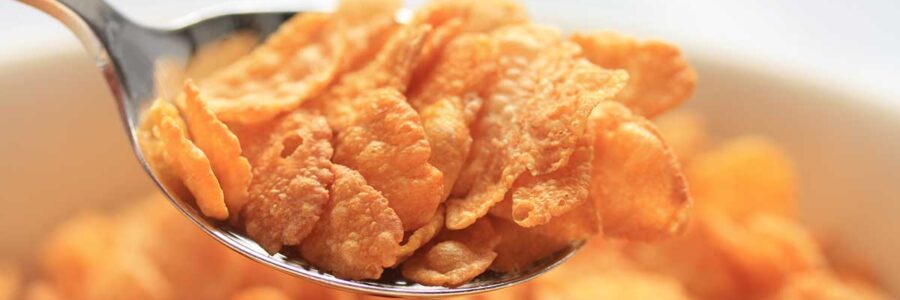Kellogg’s cereal, a common household name, has its roots in a unique and somewhat controversial history closely linked to the ideology of its founder, John Harvey Kellogg. Kellogg, a prominent late 19th and early 20th-century physician and health advocate, believed firmly in dietary control for health. His strong opposition to masturbation, viewed as detrimental to physical and spiritual health, led him to promote a bland diet to curb sexual desires.[1]
The History of Kellogg’s
This philosophy shaped the creation of Kellogg’s Corn Flakes. John, along with his brother Will Keith Kellogg, aimed to develop a healthy yet bland breakfast to reduce sexual urges. This unexpected motive behind the famous cereal contrasts sharply with current dietary trends.[1]
The transformation of diets since John Harvey Kellogg’s time is significant. Industrialization ushered in an era of processed foods, diverging from our ancestors’ natural, whole-food diets. These processed foods, high in sugars, fats, and additives, have been linked to health issues like obesity, heart disease, and diabetes,[2-4] prompting a resurgence in interest in ancestral, or Paleo, diets.
Ancestral Eating
Ancestral diets focus on unprocessed foods such as meats, fish, vegetables, fruits, nuts, and seeds. This approach, emphasizing high fat and protein intake, contrasts with modern carbohydrate-heavy diets.[6] Ancestral eating aligns with the nutritional needs of our early ancestors, offering potential solutions to modern health problems.[5]
The benefits of ancestral eating include hormonal balance and overall well-being. Diets rich in high-quality fats and proteins support hormone production and may enhance libido and sexual health. They also provide satiety and nourishment, aiding in weight management and reducing the risk of obesity.[7-9] Additionally, these diets can improve energy levels, mental clarity, and immune system strength.[10]
Adapting to ancestral eating in modern life involves prioritizing whole foods, meal planning, home cooking, mindful shopping, and gradual dietary adjustments. Listening to one’s body is key, as individual responses to dietary changes vary.
Conclusion
In conclusion, Kellogg’s cereal’s origins remind us of the evolution of dietary practices. Embracing ancestral diets, rich in natural, unprocessed foods, represents a return to the eating habits of our ancestors, potentially leading to improved health and well-being. This journey back to ancestral eating is a valuable exploration for those seeking better health and a connection to our dietary past.
References:
- “The Strange Story behind Your Breakfast Cereal.” JSTOR, daily.jstor.org/the-strange-backstory-behind-your-breakfast-cereal/.
- Juul, Filippa et al. “Ultra-processed Foods and Cardiovascular Diseases: Potential Mechanisms of Action.” Advances in nutrition (Bethesda, Md.).
- Poti, Jennifer M et al. “Ultra-processed Food Intake and Obesity: What Really Matters for Health-Processing or Nutrient Content?”.
- Chen, Zhangling et al. “Ultra-Processed Food Consumption and Risk of Type 2 Diabetes: Three Large Prospective U.S. Cohort Studies.”
- Kresser, Chris. “What Is an Ancestral Diet and How Does It Help You?”.
- Grotto, David, and Elisa Zied. “The Standard American Diet and its relationship to the health status of Americans.”
- “Ways to Support Female’s Hormones through Nutrition.” Recreational Services.
- Mumford, Sunni L et al. “Dietary fat intake and reproductive hormone concentrations and ovulation in regularly menstruating women.”
- Leidy, Heather J. “Increased dietary protein as a dietary strategy to prevent and/or treat obesity.”
- Firth, Joseph et al. “Food and mood: how do diet and nutrition affect mental wellbeing?”.


